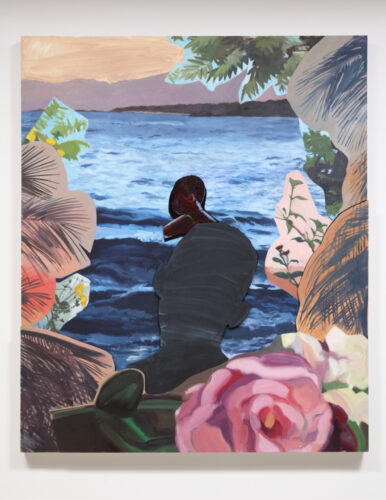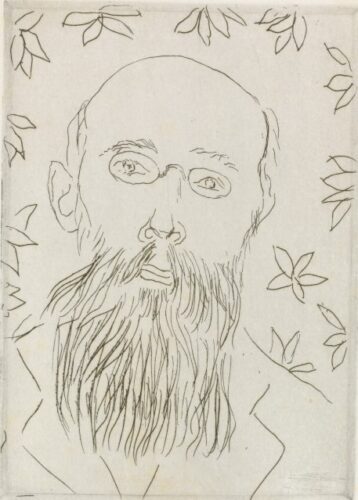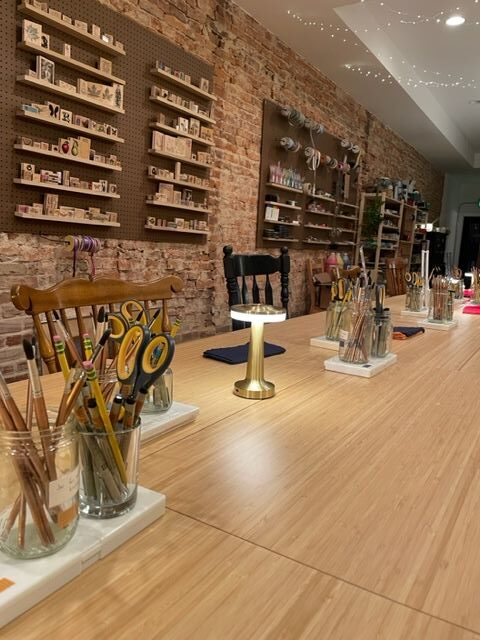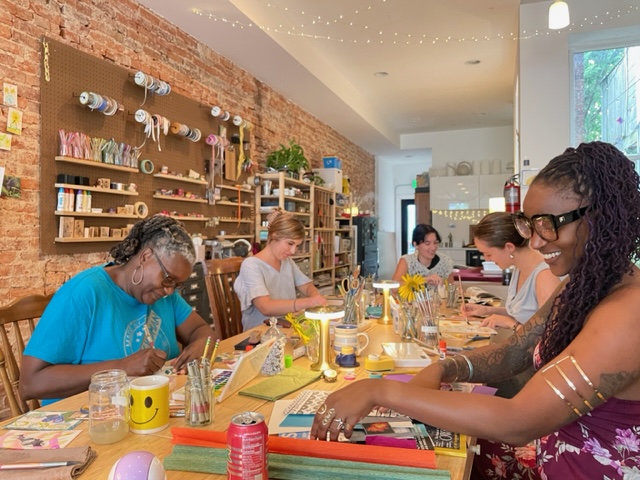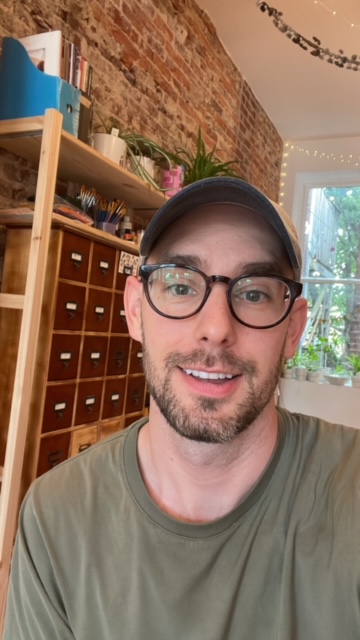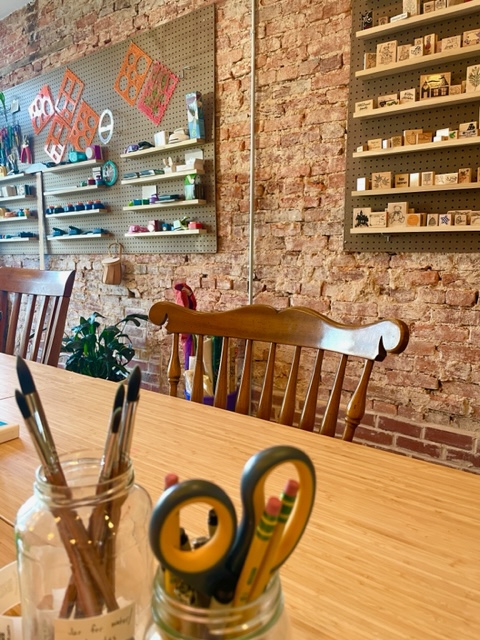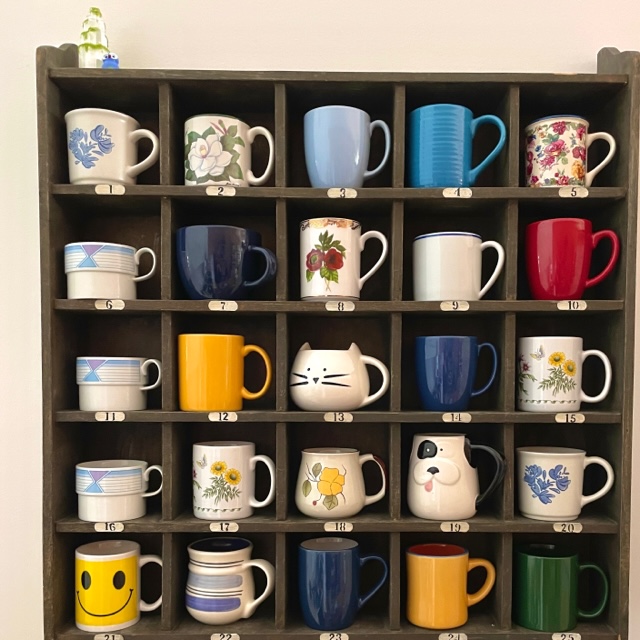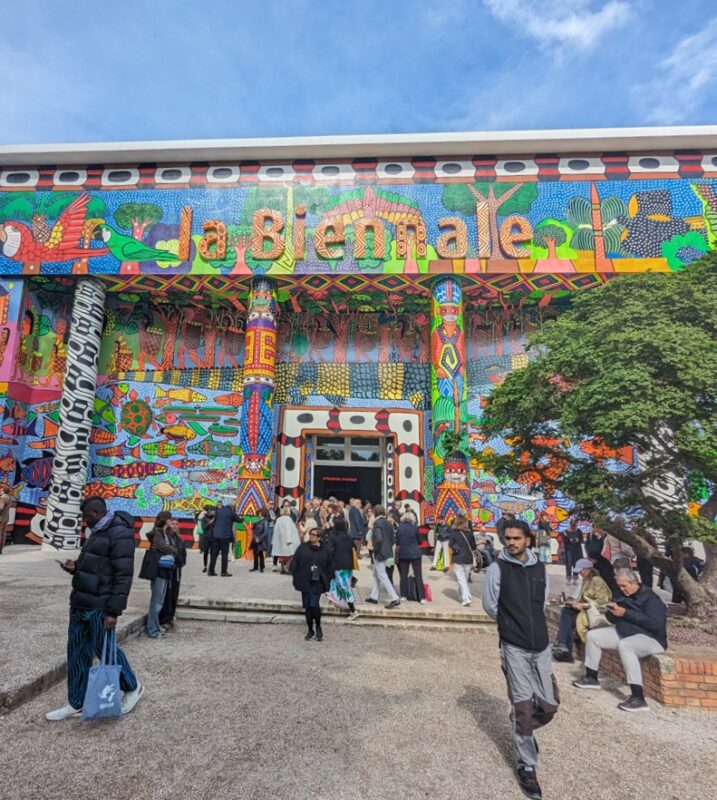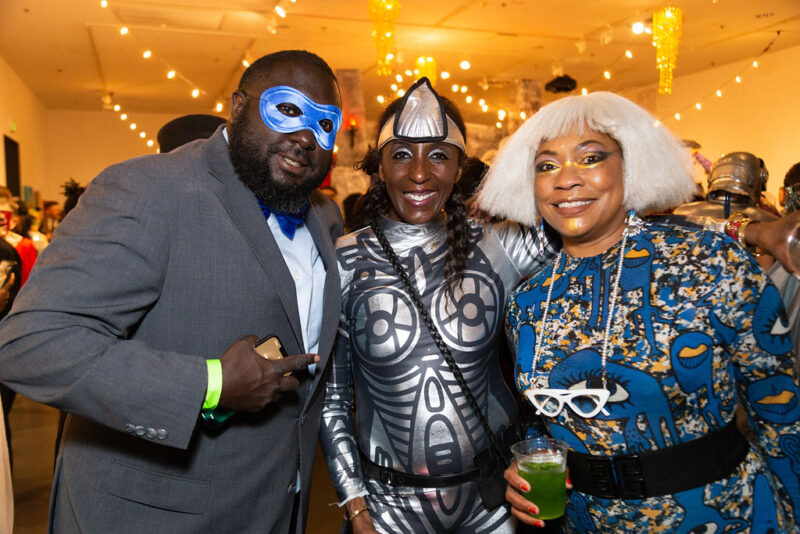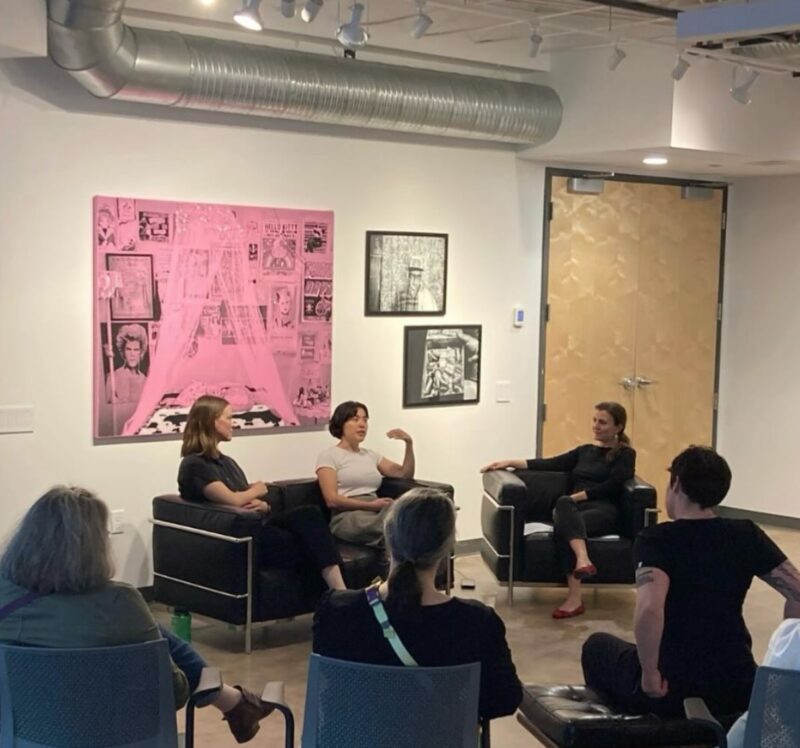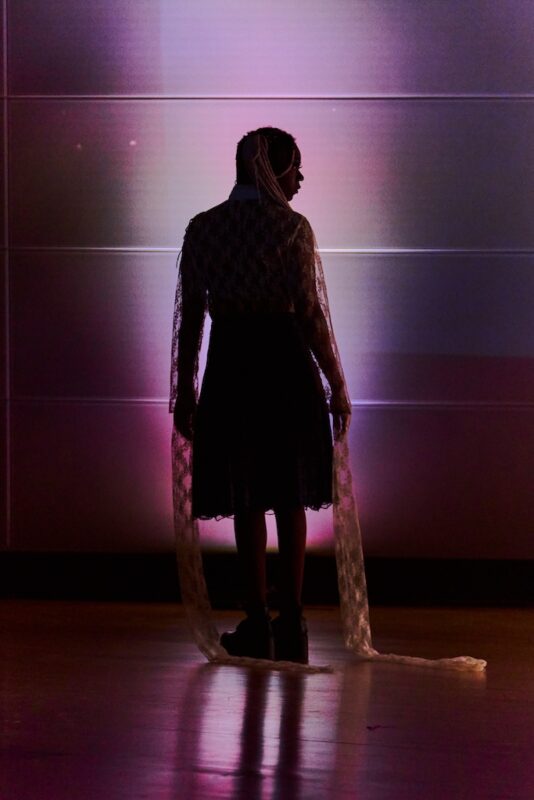BREAKING NEWS: The Craft Castle isn’t actually a castle. It is, in fact, a rowhouse, and it’s celebrating its first anniversary in October.
Some might call the Hampden arts and craft studio a diamond in the rough. Or a hidden gem, located on The Avenue, between a hair boutique and a vintage shop. To the naked eye, the Castle is a watering hole for stickers, stamps, and watercolors (for the Lumieres and Cogsworths of arts and crafts). But, beneath the surface, it’s so much more.
For starters, as founder and owner Craig Reinauer will chirp to anyone willing to listen (in a tone that, like mine, might come across as sarcastic), it’s a place to “heal your inner child.” Before our interview begins, he delivers his elevator pitch to a pair of window shoppers stopping by: “Imagine you get dropped off at art class, and the teacher’s not there.”
Except a teacher is there—well, sort of. Reinauer, 36, quit his teaching job at the end of the 2021-22 school year. He was, like many of his colleagues, burned out. Teachers’ sky-high stress levels have only worsened since COVID-19 entered the scene. Meanwhile, rates of anxiety and depression in children and adolescents have reached crisis levels, particularly among structurally disadvantaged groups.
Of course, the Castle doesn’t claim to be a cure-all for the maladies of capitalism. But it does offer a few magical doses of motivation and joy. “This is what I wanted my classroom and teaching style to be like,” Reinauer says while doodling leaves and hearts and stars, “where it’s not tied to test scores, but a place of exploration and healing.”
I’ve done a lot more healing than expected at the Castle. Making collages during the handful of times I’ve visited has helped me discover that I am nonbinary. I wrestled with, and learned to accept, my gender identity by cutting out pictures of flamingos, snakes, and unicorns; Harry Styles and Volodymyr Zelenskyy; and, naturally, rainbows.
Figuratively speaking, Reinauer is creating what Hil Malatino describes in Trans Care as a “care web”—which blends the concept of mutual aid with the ideas of disabled, feminist thinkers and activists of color—whereby folks offer each other help according to their ability and accept it according to their need. As May Chazan writes in Crip Time and Radical Care in/as Artful Politics, it is through “care-filled, artful practices” that “we slowly make our next world.”
Put simply, Reinauer says, the Castle is “more than a business.”
“It’s a lifestyle,” I interject.
